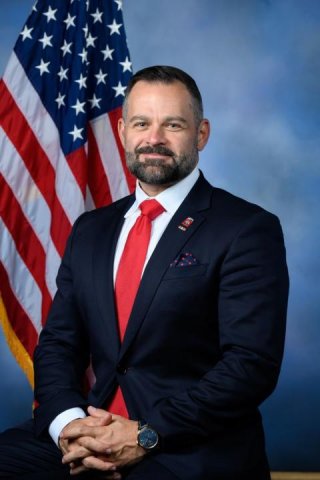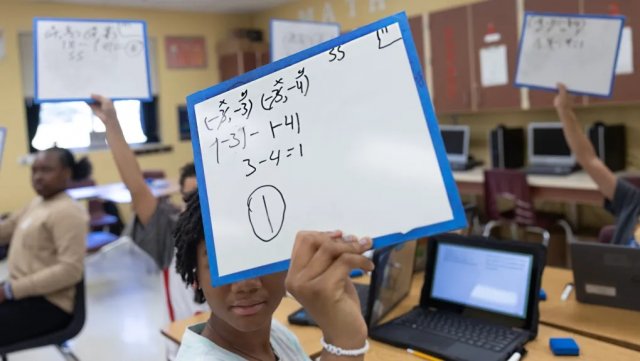Little did I know, that even as I was writing my post about the recent presidential debate, Bret Weinstein and Heather Heying, of the DarkHorse Podcast, were busy wrestling with some of the same questions. Specifically, How could those close to President Biden not have known how bad he would appear in such a situation? and Who has really been running the country all this time? I saw their podcast the next day, and now must share it.
(I know, lots of people, all over, have been talking about the debate and what the Democratic Party is going to do, but most of them seem to me to be missing the important parts.)
As usual, there's much of interest in the whole video of more than two hours, and I list below the timestamps for those who want them. The actual debate commentary is short, between 1:23 and 1:30, but if you're at all interested, I would strongly recommend you listen to it in context, from 1:10 and 1:51.
Timestamps:
(00:00) Wait
(11:41) Welcome
(14:16) Sponsors
(22:46) Thomas Paine's Common Sense
(39:56) Excerpt 4-6
(50:56) Indifference to suffering
(01:10:31) Declaration of Independence
(01:18:01) Defining Deep State
(01:23:24) Post debate discussion
(01:30:01) Revisiting the 2020 election
(01:34:16) Hunter Biden's laptop and inverse institutions
(01:45:51) Certainty yet dead wrong
(01:51:36) Team GB Rugby and body positivity
(02:02:31) Caitlin Clark and attention communism
(02:16:11) Wrap up
It has been a patriotic day, as is fitting for July 4.
We marched in an Independence Day parade. (Photo credit Kara Lee) (click to enlarge)
I shook hands with our congressional representative, and followed up later with a letter. We didn't have time to exchange more than brief platitudes, but I overheard him saying, "I'd rather lose my Congressional seat than lose our Republic." I have no idea what was the context of that statement, but I appreciate the sentiment of sacrifice for the common good.
We supported a local business, and our underserved pollinator population.
We ate hamburgers, and watermelon. That's pretty all-American.
We exercised our American right not to set off fireworks. Unfortunately, there is no American right not to listen to other people's fireworks, on this or any other day, but I anticipate being able to sleep through them anyway. Marching in the midday Florida sun, hefting heavy cymbols, and frequently running from one end of the band to the other is a pretty good sleep aid.
We hope you all had a wonderful Independence Day, even (maybe especially) our expat population.
Permalink | Read 846 times | Comments (0)
Category Everyday Life: [first] [previous] [next] [newest]
Somewhat against my better judgement, I watched the presidential debate. I knew that once people started talking, I'd be tempted to say something about it, so I'd better have first-hand knowledge.
I cannot understand what all the fuss is about since then. Why it seems to have been such a surprise to so many people.
But first, my own reactions.
- I have no idea why Trump agreed to the debate. It was held on clearly hostile territory (CNN, with the moderators manifestly against him, politically). The format did not play to his strengths, i.e. without a crowd to play to and be encouraged by. He was already ahead in the polls, so on the face of it, the debate was riskier for him than for Biden.
- The moderators did a better job than I expected of keeping their biases in check, so I give them some credit for that. But they did a lousy job of keeping the debaters in check. They weren't moderating anything, just reading questions (that weren't answered).
- Can we make it a rule that no one can run for president without first having participated in debate in high school? This was the second-most ridiculous so-called debate I've ever seen. Not that I've seen very many, but I have some idea of how the participants are supposed to behave, and this was not it.
- I found Trump more cogent and intelligent than Biden, certainly, but neither one of them answered the questions! They poked back and forth at each other like a couple of rude middle school boys, and said what they wanted to say irrespective of the questions. I wanted to hear about issues—they wanted to hammer on and on about how terrible the other guy was.
- Biden was so embarrassing—worse, he was really scary. The hatred I saw in his eyes when he looked at Trump was like a kick in the stomach, the same as I saw during his Independence Hall speech. Then again, I may have been misjudging his expression; I couldn't help wondering if he has had a small stroke, given the asymmetry of his smiles.
- Trump could have made all his points about how badly Biden has done by instead being positive about what he will do to fix the problems. He shouldn't have stooped to the level his enemies were hoping for. This argument over who was the worst president in American history? Absurd, and middle-schoolish at best. (I think they're both wrong.)
- Trump also should not have let Biden play the Reagan card. As incapacitated as he was, Biden managed to maneuver Trump into saying how terrible America is, and how much trouble we're in (Carter's position), while portraying himself as the positive, optimistic candidate (Reagan's). Anyone who has been looking at the last four years with open eyes knows better, but those aren't the people Trump needs to reach.
- The exclusion of Robert F. Kennedy, Jr. was inexcusable. He would have made the debate much more interesting, and quite possibly would have set an example by actually answering the questions asked. It's not that I think he's really a viable candidate—I agree with Mark Groubert that he (and we) would be much better off if he quits his presidential campaign and runs instead for California's governor or senator position, for either of which he should be a shoe-in. But his ideas are rational and important, and they deserved to be heard in the context of the other participants' answers.
Most Trump supporters apparently think that he won the debate. If so, it was only because Biden clearly lost. There's a reason why I generally avoid listening to politicians talk. When I hear them speak, I despair. It's when I look at what they have actually done that I feel I can make an intelligent voting decision.
What really puzzles me is the shockwave that has been rocking the Democratic Party because of Biden's performance. Really? Who can be shocked? Biden's cognitive decline was visible at least as far back as 2020, and has gotten progressively and significantly worse. It's long past the point for giving him the benefit of the doubt. Maybe the casual citizen, who only hears sound bites and sees highly edited videos, could have missed it, but the party movers and shakers? The news media who edited the video footage? Those closest to him in the government? How could they possibly have been surprised?
Is it all an act? Did they know, and plan to use what they expected to be a disaster of a debate to give them an excuse to manipulate a more reliable candidate into being their presidential candidate? Did they somehow hope Biden could hold things together and come across better than he did, to win the election and establish himself as president just long enough for the vice president to take over? Did they really delude themselves into believing he was okay—until the debate made it impossible to deny? I have no idea; none of it makes sense to me.
I am left with two questions.
- What is the Democratic Party going to do? Prop up Biden and hope he can survive until he is sworn in, then take him out as gently as possible? Or go through whatever machinations they can to put forth an alternate presidential candidate, one chosen in the old-fashioned way, by political hacks in smoke-filled back rooms? (Here in Florida, we didn't even have a primary to vote in.)
- Who has really been running the country for the past few years? Whatever person, or cabal, it might be, they were not elected to this position, and have been doing a spectacularly terrible job of it. How do you vote out someone who was never voted in?
Finally, a warning for Republicans: Be careful what you wish for. "It can't get worse" does not have a good track record.
An article in today's Orlando Sentinel boasts this headline: Florida students make ‘substantial gains’ on state tests, new results show. I'm not going to say much about this happy headline, except to note that the joy includes the fact that only 22% of third graders failed to read at grade level, down from 27% last year. Other statistics are similarly dismal. This in a state that U.S. News & World Report ranked #1 in education.
But it's not the schools I'm taking issue with at the moment. It's the newspaper, which with the article ran this photo of middle school students learning math. (Photo credit Willie J. Allen Jr/Orlando Sentinel) (click to enlarge).
As near as I can figure out, the problem is to find the distance between two points on a Cartesian plane, (-3, -3) and (-3, -4). What's written is not the way I would have approached the problem, but—assuming scalar distance, since no direction was specified—the answer is, indeed, 1. I'm also assuming that some of the work was done in the student's head, and these are just notes taken along the way.
Nonetheless, instead of a room full of (possibly) eager math students, what stands out to me—in an article bragging about improvement in math scores—is the equation,
3 - 4 = 1
Bragging about her grandchildren is written right into the Grandmother Contract, and I've certainly done my part in the past. But never like this.
The pathology report on Grace's colon biopsy indicates graft versus host disease. (That's not what I'm bragging about.) It is a mild form of GVHD, and they believe a couple of weeks of steroids should take care of it.
My own grandmother-gut suspicion, based on no medical expertise at all, is that the GVHD showed up in her colon because that's been the weakest and most stressed part of her body for most of her life. It was intestinal problems that eventually led to her NF1/JMML diagnosis. (Once the doctors got out of the rut of thinking, "it's just food allergies.")
We thank God that the doctors believe this will be a short-lived problem.
And here's the punch line. Two-year-old Grace has no doubt been set back somewhat in her development by all her medical problems and procedures. But there's no doubt that she listens, pays attention, and thinks about what she hears. When she overheard that the diagnosis was GVHD, she got very upset!
They anticipate discharge on Wednesday.
Permalink | Read 1016 times | Comments (1)
Category Pray for Grace: [first] [previous] [next] [newest]






